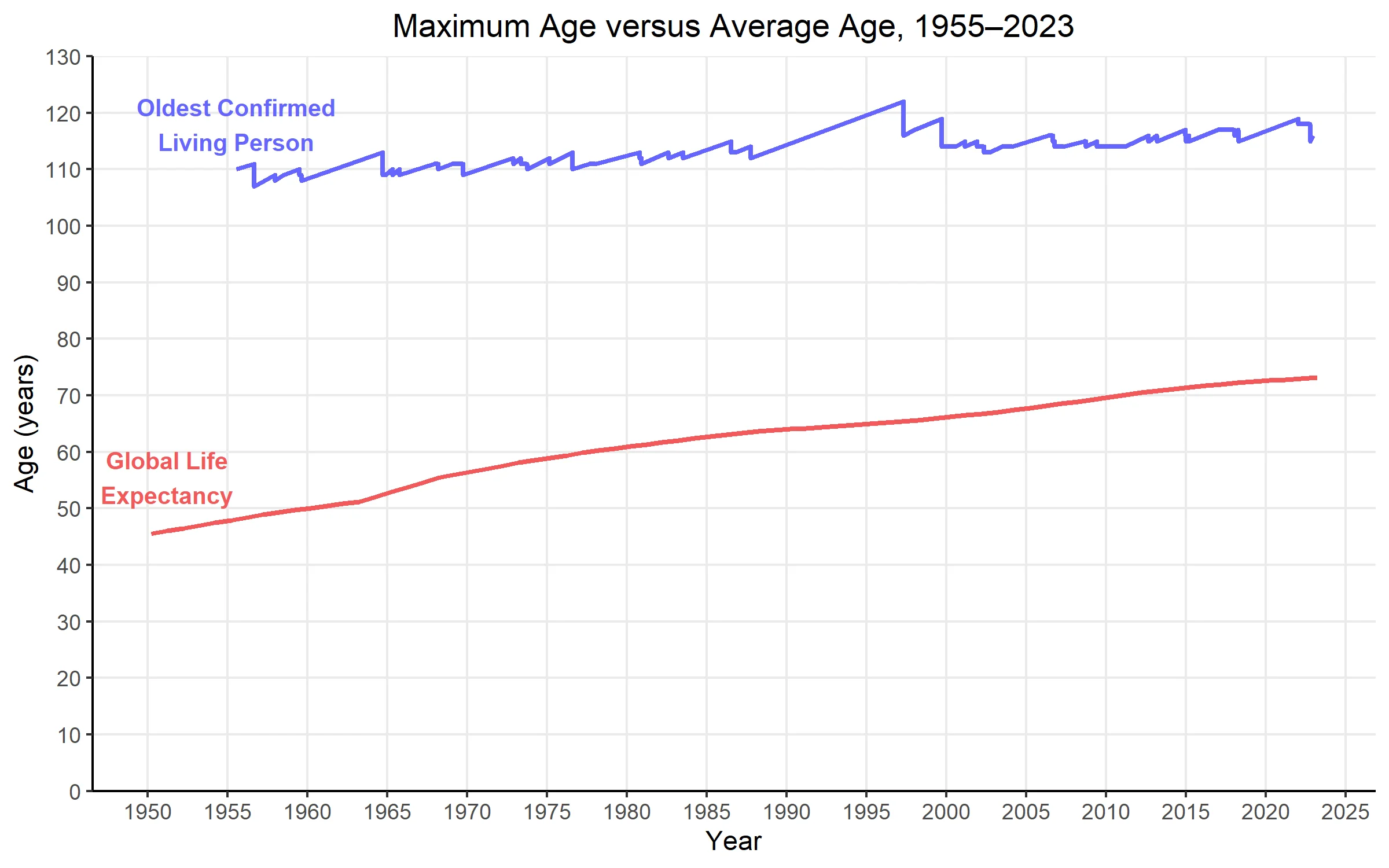
In other words, someone that is now 100 years old will live 50 years more
For cases of cryogenic or similar reanimation the "age counter" will pause while the individual is considered dead
In this market we're only considering biological humans, and time will be measured in an objective scale such as UTC, so a digital mind with subjective experience of 150 years does not count
People are also trading
In general I don't like when markets like this one don't include digitized humans. If the thing the market is trying to capture is whether we can expect to be around in a particular year, or live up to a particular amount, based on how much technological development there is, it's weird that at a certain level of technological development (being able to digitize humans), the resolution "wraps around" from YES to NO.
@Nikola Like, it's pretty plausible that in post-singularity, it will be "too expensive" or "too wasteful" to be biological instead of digital, and so this market inadvertenly is capturing uncertainty around market dynamics around sustaining biological humans post-AGI, even conditioning on getting aligned AGI. But this doesn't really matter if the thing we're trying to capture is whether we can expect to live up to a certain point. Maybe it matters for people who are hell-bent on staying biological.
@cloudprism I don't understand. Are you saying it's impossible to copy people into different substrates?
@Nikola Even if you can copy say Noam Chomsky’s connectome (currently 90yo) into a suitable digital storage he will say that it’s “just plagiarism” and not the real deal. The copy might agree, too.
The United Nations estimates that currently there are 573,000 centenarians, almost quadruple the estimate of 151,000 made in 2000.
https://en.m.wikipedia.org/wiki/Centenarian
So is there a chance that one of these people lives 50 more years...? Hmm
@NoaNabeshima yeah either singularity by 2028 or extinction by 2028. no real possibility of anything else, though that might not be obvious to everyone right now, and currently I'm the only one betting yes on my "will we be completely surpassed by 2028" market.
@Nikola Ted Williams was born in 1918 and is currently cryopreserved. If Ted was reanimated in 2071, would this resolve YES? https://en.wikipedia.org/wiki/Ted_Williams#Death
@Nikola https://www.cbsnews.com/news/ted-williams-frozen-head-mistreated-in-alcor-cryonics-facility-says-book/
If they actually played baseball with Ted's frozen head that might have caused irreversible damage. Poor Ted.
@Nikola
> Amount of time spent animated?
Let's use this one, I wouldn't consider myself 1031 years old if I died and were reanimated at 3022. People are not living while cryogenically preserved, so it is also consistent with the description "someone that is now 100 years old will live 50 years more". Long comas count as living though
@GustavoMafra so for digital people, this would resolve based on subjective time experienced, I assume? If a digital person experienced more than 150 years of subjective time in the year 2070, would this resolve YES? Or would it be a sum of their objective time spent having subjective experience, both physical and digital?
@Nikola I think subjective time experienced is very subjective, and would not work well for non-digital people who are sleeping, for example.
@Nikola Let's make this market only for biological humans and measure time by objective standards, like UTC or Earth rotations around the Sun

